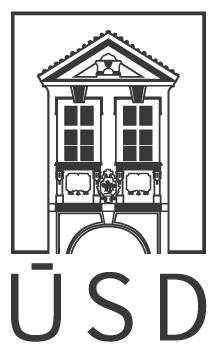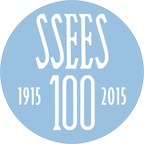The research network consists of seven different institutions. Please follow the links to find out about each one.
 Institut d’Etudes Politiques de Lyon, Sciences Po Lyon, and l’Université Paris 8, Institut Universitaire de France (IUF)
Institut d’Etudes Politiques de Lyon, Sciences Po Lyon, and l’Université Paris 8, Institut Universitaire de France (IUF)
The Institut Universitaire de France (IUF) is a service of the French Ministry of Higher Education which selects a small number of university professors each year on the basis of their research excellence, as evidenced by their international recognition. Its members, elected for five years, remain attached to their own universities and benefit from a reduction of two-thirds of their statutory teaching service. The IUF gives full freedom and a budget to its research professors to pursue their research projects and disseminate their findings.
The IUF is funding two leading scholars – Laurent Douzou, professor at Sciences Po Lyon and Mercedes Yusta, professor at Paris 8 – specialists in the Resistance history respectively of France and Spain, to undertake a project on transnational resistance in Mediterranean Europe. This prioritises the question of resistance in ways not undertaken by other centres of war and society. It offers a regional angle on the pan-European project proposed for the Leverhulme Network and will provide expertise on approaches and methodology as well as substantive research findings on resistance in this theatre.
 Institute for Contemporary History, Academy of Sciences of the Czech Republic, Prague
Institute for Contemporary History, Academy of Sciences of the Czech Republic, Prague
The Institute for Contemporary History in Prague is an integral part of the Academy of Sciences of the Czech Republic. It was founded immediately after the fall of the Communist regime, with the aim to undertake primary research into post-1938 Czech and Czechoslovak history in the international context. Within this overall objective, the focus of enquiry varies from the study of key events in the political history of Czechoslovakia to a multi-layered exploration of contemporary history including everyday life. It is a flourishing centre for the research and teaching of contemporary history at the heart of Europe.
The Institute for Contemporary History will contribute the expertise of two senior research fellows, Vít Smetana, who has worked on international issues and exiles, and Zdenko Maršálek, an expert on military questions. They will work on transnational resistance Czechoslovakia , which, because of its multinational composition, represents an excellent example for assessing transnational aspects of resistance in the Central European context. Czechs provided members of the International Brigades and were connected to resistance activity in France, Italy and the Soviet Union, but their story was eclipsed by the solidification of an artificial picture of national resistance after 1945.
 Institute for Recent History (IRH) of Serbia, Belgrade
Institute for Recent History (IRH) of Serbia, Belgrade
The Institute for Recent History of Serbia, Belgrade, is dedicated to the history of Serbia and the wider region of the Western Balkans in the twentieth century. Its fifteen research fellows and twenty-two PhD students, funded largely by the Serbian Ministry of Education, Science, and Technological Development, work on the history of the First and Second World Wars, the Holocaust, international relations, political and economic systems, religion, collective memory, women and children, peasants, sports, culture, minorities. The Institute is engaged in collaborative projects with similar institutions in Europe, including Croatia, Bulgaria, Bosnia- Herzegovina, Slovenia, the Czech Republic, Germany and Russia.
Professor Olga Manojlovic Pintar is a leading expert on questions of war, resistance, commemoration and identity in Yugoslavia and the Balkans in the twentieth century and heads the Institute for Recent History of Serbia. Together with researchers Milovan Pisarri, who is an expert on Yugoslav/Italian resistance in the SWW and Sanja Petrovic Todosijevic, who has worked on the SWW in Yugoslavia, she will provide expertise on transnational resistance in the Balkans and the interface with Italian resistance. The Institute will host the first workshop on questions of national and transnational resistance.
 Institute for War, Holocaust and Genocide Studies (NIOD), Amsterdam, The Netherlands.
Institute for War, Holocaust and Genocide Studies (NIOD), Amsterdam, The Netherlands.
The Institute for War, Holocaust and Genocide Studies (NIOD), part of the Royal Netherlands Academy of Arts and Sciences, was founded in Amsterdam in 1945 as the centre for the study and dissemination of knowledge of the history of the Netherlands, including the Dutch East Indies, during and after World War II. It has a research department and a collections and services department that collects and provides access to archives and library collections. Over the years the NIOD has developed into an authority in the field of the effects of war, large-scale violence and genocidal processes on man and society.
The NIOD is currently developing a new research program entitled “New visions on ‘the resistance’ during the German occupation of the Netherlands (1940-1945)”. It will examine different groups and foci such as students, imprisoned resisters, the internal organization of resistance networks, leadership, hiding and rescue, interaction with the occupier and processes of radicalization. It starts from the Dutch case as an example but with the objective to work towards a European approach to resistance focusing on transfer of persons, ideas and experiences. Ismee Tames, Director of Research at the NIOD, will be running this project and collaborating with the network.
![]() Modern European History Research Centre (MEHRC), University of Oxford, United Kingdom
Modern European History Research Centre (MEHRC), University of Oxford, United Kingdom
The MEHRC was founded in 1999 as a platform to coordinate expertise among modern Europeanists in the Oxford History Faculty and to facilitate the development of collaborative research projects with colleagues in the UK, Europe and the USA. It holds regular workshops and seminars on cutting-edge aspects of modern European history, welcomes visiting researchers to work on joint projects and trains new generations of researchers in European history through the Faculty’s MSt, MPhil and DPhil programmes.
The MEHRC has great strength in twentieth-century history and notably in the history of the Second World War. It will host the third workshop on the post-1945 afterlives of resisters and the memory of European resistance. It will draw on the expertise of Robert Gildea on the French Resistance and transnational approaches to twentieth-century European history, of Professor Tom Buchanan on the Spanish Civil War and International Brigades and of Professor Paul Betts on twentieth-century German culture and politics, with special reference to the German Democratic Republic.
 School of Slavonic and East European Studies (SSEES), University College London, United Kingdom
School of Slavonic and East European Studies (SSEES), University College London, United Kingdom
The School of Slavonic and East European Studies (SSEES) at UCL, is a world reference centre in the study of anthropology, sociology and the history Central, Eastern, South-Eastern Europe, Russia and Eurasia. SSEES also leads the inter-university Centre for East European Language Based Area Studies (CEELBAS). It has more than sixty academic staff and five interdisciplinary research centres, 200 graduate students, seventy of whom are funded by scholarships from the UK research councils (AHRC and ESRC), UCL or departmental scholarships, and awards from other sources, and over 500 BA students.
SSEES will contribute to the project through the work of Dr Bojan Aleksov, Lecturer in Modern Southeast European History and director of the UCL Centre for the study of Southeast Europe. Aleksov is an expert on the Balkans in the twentieth century and is currently working on the flight of Jews from Central Europe to the Balkans in the Second World War. He has strong ties with partner 5, the Institute for Recent History in Belgrade, and together they explore the complexity of transnational resistance in SE Europe.
 University College Dublin (UCD) Centre for War Studies, Ireland
University College Dublin (UCD) Centre for War Studies, Ireland
The UCD Centre for War Studies, founded in 2009, is an interdisciplinary research institute that specializes in the history of human conflict broadly defined and specialises in projects that deal with the transnational history of modern wars. With twenty staff members from the schools of History, Sociology, and Politics and a large cohort of graduate students and postdoctoral fellows, it is one of the largest and most international Centres for conflict studies in the British Isles. The Director of the Centre, Professor Robert Gerwarth, has published widely on the history of violence in the twentieth century.
The UCD Centre for War studies is currently engaged in a transnational history of collaboration during World War II which resonates with the Network project, Professor Gerwarth will host a workshop with the Leverhulme research network exploring similarities and differences in approaches to collaboration and resistance in Nazi-occupied Europe. This will open up interesting comparative perspectives on the social profiles of resisters / collaborators from different European countries and similar patterns of recruitment e.g. from internment camps. It would also explore the not infrequent transformation of “collaborators” into “resisters”, notably towards the end of the war.